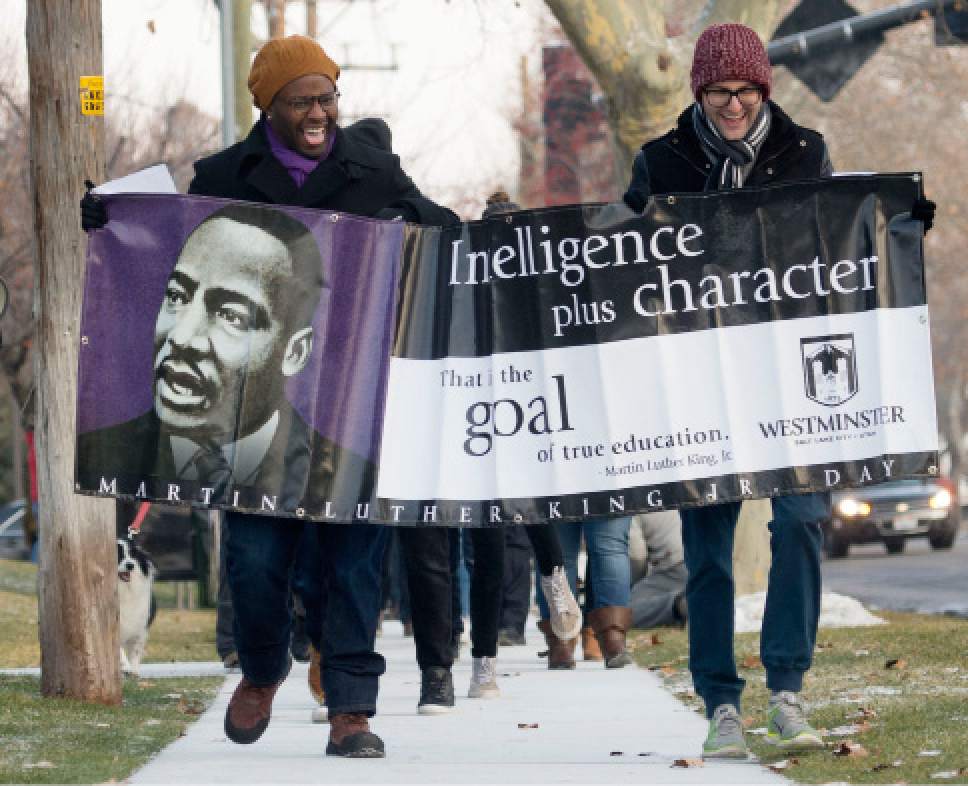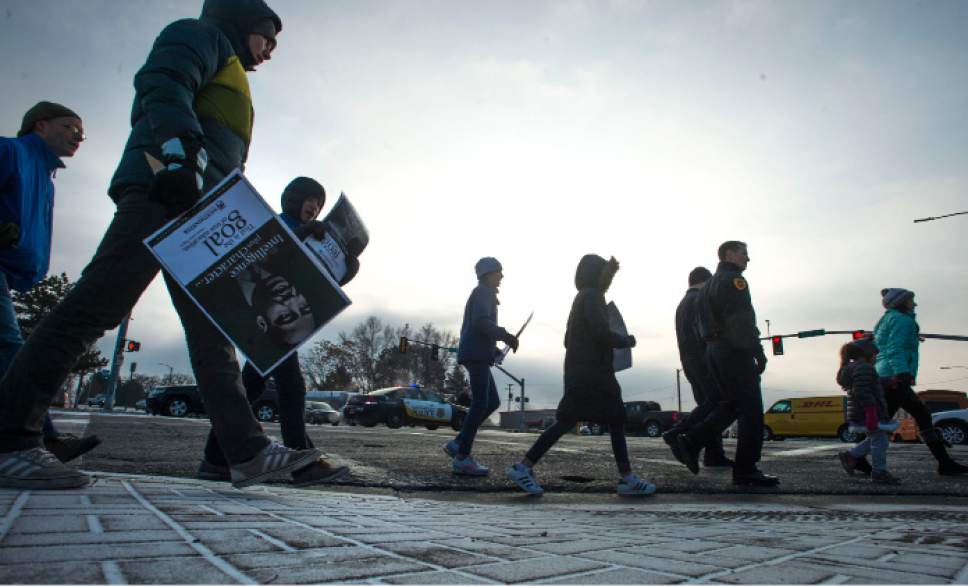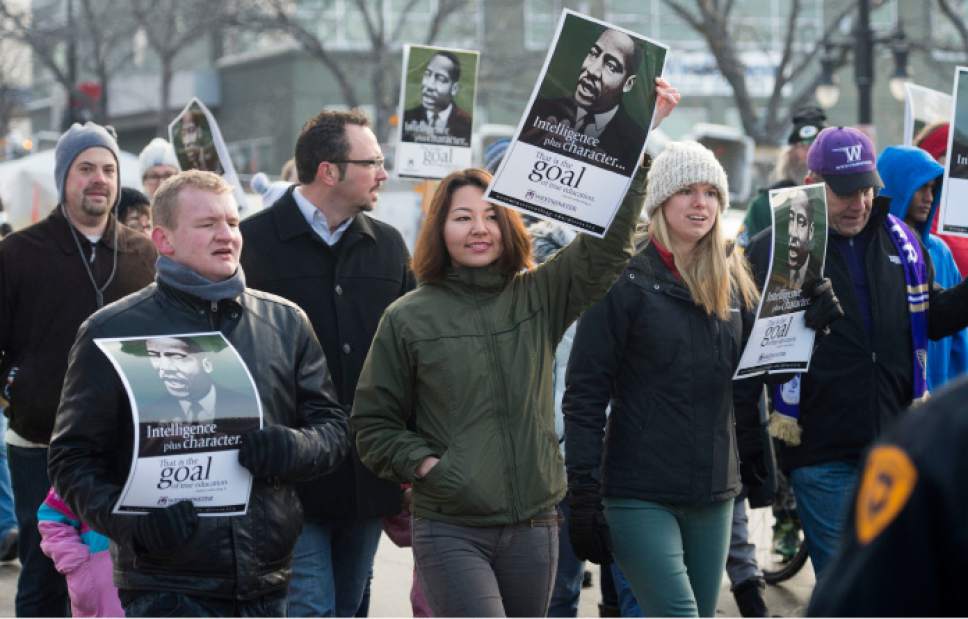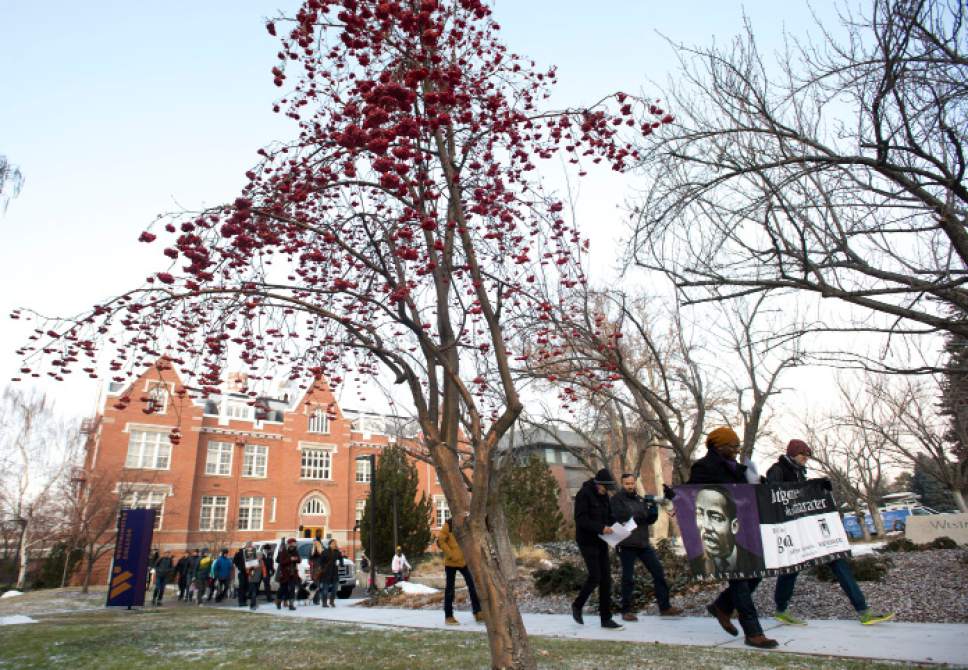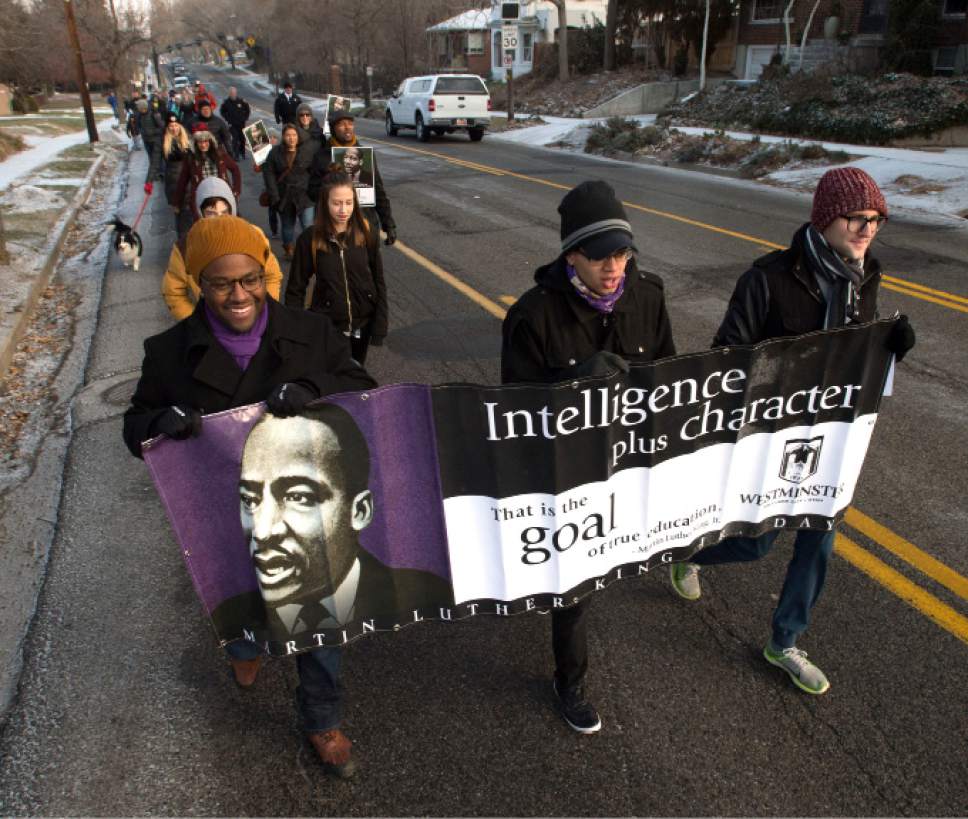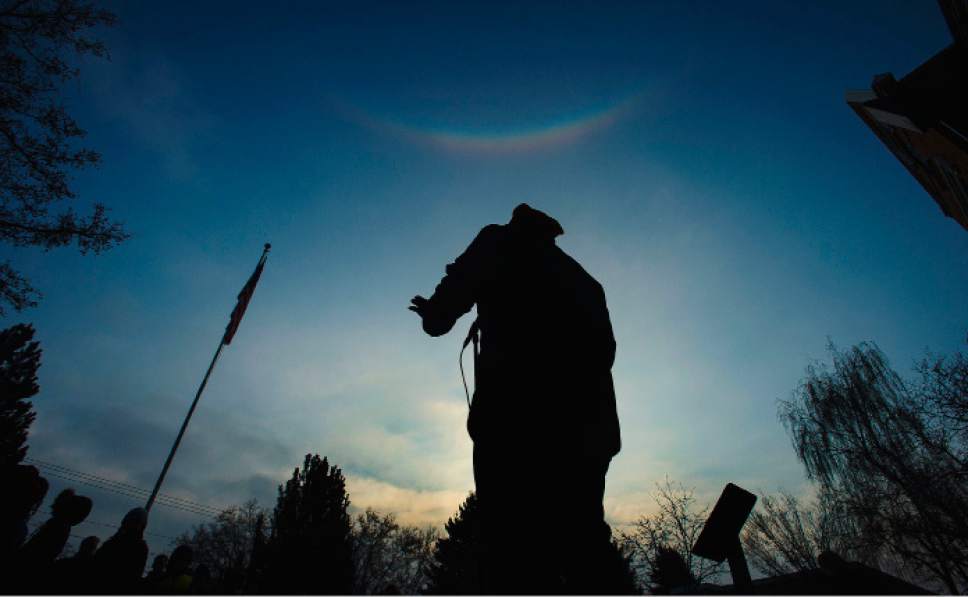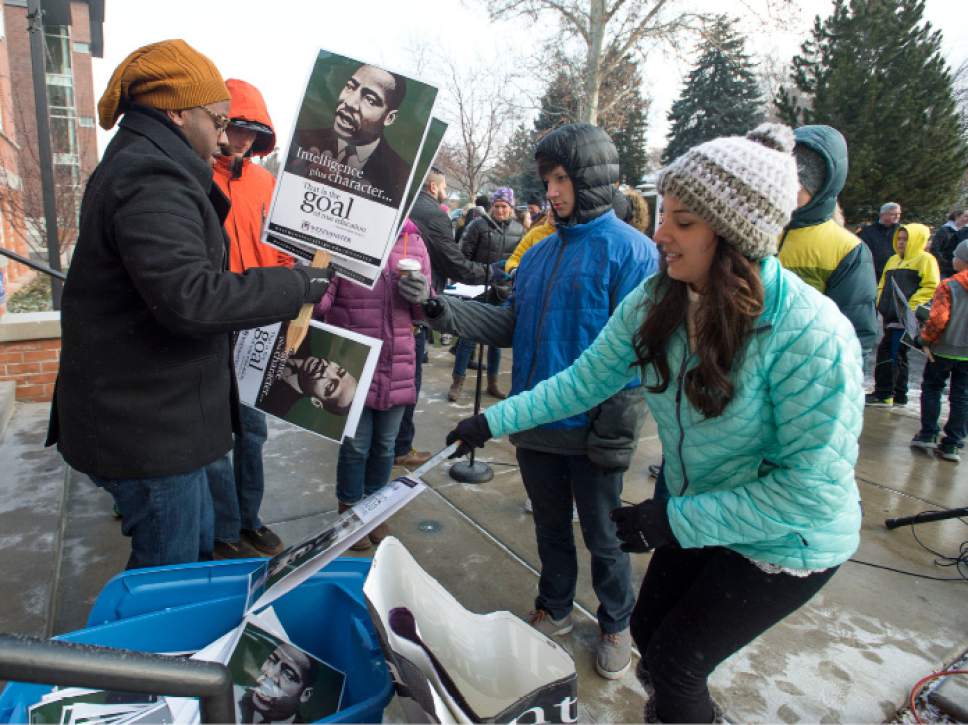This is an archived article that was published on sltrib.com in 2017, and information in the article may be outdated. It is provided only for personal research purposes and may not be reprinted.
Holli Yoho stopped to take a photo Monday of her three kids, their cheeks rosy and their bodies huddled together against the cold, as they marched through Sugar House in a pack of about 40 others.
All around them, people were chanting "This is what democracy looks like" and "No justice, no peace." Some held signs bearing Martin Luther King Jr.'s face and the quote "Intelligence plus character, that is the goal of true education."
Yoho has been trying to bring her children to Westminster College's Martin Luther King Jr. march for years, but it's never worked out. Until now.
And that seems appropriate, she said, given the political climate the country is embroiled in as President-elect Donald Trump's inauguration approaches.
"I wanted them to see and understand that everyone is equal," Yoho said.
That feeling permeated the group, who braved the below-freezing temperatures Monday morning to march a mile and a half in honor of King. Westminster has been holding this march since 2012, but it seemed more important this year than ever, many said, to take a stand for equality and against injustice.
This is the second year Staci Carson, Westminster's vice president for institutional advancement, has taken part in Westminster's march. She said it feels like the same kind of issues King fought against decades ago is resurfacing now, just in a different way.
"It's even more important that people understand that we're all humans, we all deserve equality and we all deserve to be treated fairly regardless of who we are, what we [look] like and what side of the political table we sit on," Carson said.
Eileen Chanza Torres, a Westminster professor, brought up the recent battle between Trump and Congressman John Lewis, who played a key role in the Civil Rights Movement and was beaten for challenging Jim Crow segregation laws, according to Lewis' website.
This past weekend, Lewis spoke publicly about how he felt Trump was not a legitimate president and that he wouldn't go to the inauguration, the first time in 30 years, according to the Washington Post. In response, Trump wrote on Twitter that Lewis was "All talk, talk talk — no action or results. Sad!"
In regards to that dispute, Chanza Torres said she was "taken aback by how folks are quoting King and his legacy.
"It struck me how uninformed people are about King's legacy ... King was about passive resistance, yes, in part," she said. "But he was also someone who said we have to fight injustice and that fight is not simply sitting down and saying, 'I will be your friend.'"
Prior to Monday's march, Chanza Torres urged educators and students alike to learn and teach all of King's legacy, including "the beatings, the fighting and the dogs."
"We can't just teach the parts that are nice about King, the parts that make us comfortable and happy," she said. Everything "has to be taught and remembered, especially in the climate we're in now."
Elliott Parkin, a sophomore studying environmental science at Westminster, didn't come to the march this year specifically because of what previously has been said by Trump. But he agreed that it made the march even more important.
"It shows that we've come together as a community," Parkin said. King "wanted us to continue his legacy ... and we are the future, the generation that has to carry the legacy."
Twitter: @alexdstuckey


